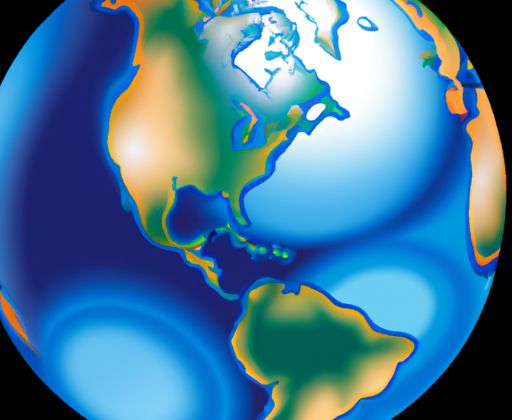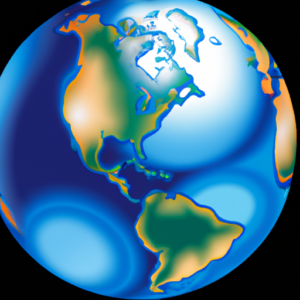
Oh Hello, I’m an Expat! Ready to Tackle Different Climates?
Hey there, fellow adventurer! So, you’ve decided to take on the challenge of living abroad as an expat. I know it’s not easy, trust me, I’ve been there. One of the biggest obstacles you’ll face is adjusting to the local climate. It can be a shock to the system to move from a familiar climate to a completely different one, but fear not! With a little preparation and knowledge, you’ll conquer the heat, cold, rain, and everything in between.
Doing my Homework: Researching the Climate Beforehand
Before moving to a new country, it’s essential to research the climate and weather patterns. This step can help prepare you mentally and physically for the changes you will face. Gathering information on temperature and rainfall, and identifying seasonal changes can also help you make informed decisions on the type of clothing, accessories, and medications needed to cope. Once you have researched the climate, you can start planning for adjustments to your lifestyle, including your daily routine, food intake, and exercise regimen.
Adjusting to a New Climate as an Expat: Invest in the Right Clothing
When I first moved to a new country, I had no idea how much the climate would impact my daily life. The weather was drastically different from what I was used to, and I found myself feeling uncomfortable and unprepared. However, one of the best things I did to adjust was investing in the right clothing. Here are some tips on how to do the same:
Shop for Climate-Appropriate Clothing
One of the most important things to consider when adjusting to a new climate is the type of clothing you wear. Take the time to research the temperatures and precipitation levels as well as seasonal changes ahead of time. Purchase clothing that will keep you comfortable and appropriate for the climate. This means investing in items like thermal leggings, waterproof jackets, insulated boots and sun hats.
Get Comfortable in Layers
As you’re adjusting to a new climate, it’s important to remember that the weather can change from one moment to the next. One moment, the sun may be scorching hot, but a few hours later, the temperatures could plummet. Wearing layers that you can easily remove or add is the key to staying comfortable all day long.
Find Clothes that Suit Your Personal Style
Just because you’re moving to a new climate, it doesn’t mean that you need to sacrifice your personal style. Find clothing items that suit your tastes while also being appropriate for the climate. Consider investing in bright, colorful items or unique accessories that show off your personality.

Accessories can be a life-saver when it comes to adjusting to a new climate. Invest in sturdy umbrellas to protect you from rain showers or strong winds. Get a good pair of sunglasses to shield your eyes from UV rays. A wide-brimmed hat can also help keep harsh sunlight off your face and neck.
By investing in the right clothing when adjusting to a new climate as an expat, you can ensure that you’ll feel comfortable and prepared for whatever weather comes your way.
Use Home Remedies to Combat Allergies
Hey there, fellow expats! One of the biggest challenges I faced when adjusting to a new climate was dealing with allergies. It’s no fun suffering from a runny nose, itchy eyes, and sneezing fits. So, here are some home remedies that I found helpful in combatting allergies:
Utilize natural remedies such as essential oils and honey
Essential oils are my go-to when it comes to allergy relief. I diffuse peppermint and lavender oils in my room to help clear my sinuses and reduce inflammation. I also add a drop of peppermint oil to a cup of hot water and drink it as a tea to ease nasal congestion. Another natural remedy that works wonders is honey. It has anti-inflammatory properties that can soothe irritated nasal passages. I take a spoonful of raw, locally sourced honey every morning to help reduce allergy symptoms.
Purchase over-the-counter medications
If natural remedies aren’t enough, consider purchasing over-the-counter allergy medications. Antihistamines like cetirizine or loratadine can provide relief from symptoms such as sneezing, runny nose, and itchy eyes. Nasal sprays containing corticosteroids can also reduce inflammation and congestion. Just remember to consult with a doctor or pharmacist before taking any new medications.
Overall, dealing with allergies as an expat can be challenging, but these home remedies and over-the-counter medications can make a big difference in your daily life. Give them a try and see what works best for you!
5. Join Local Support Groups
Alright, guys, I gotta say that moving to a new country can be quite overwhelming. You get to learn a new language, meet new people, learn to navigate a new environment, and most importantly, learn to adjust to a new climate. Believe me, this expat journey can be lonely, especially when you’re struggling to adapt to a new climate. That’s why I recommend joining local support groups.
Connecting with other expats who are also experiencing the same challenges as you can be therapeutic. You’ll find a sense of belonging and comfort in knowing that you’re not alone. Finding resources such as meetups and clubs will be beneficial to your overall adjustment to a new climate. People in these local support groups will give you tips on how to manage allergies, what to wear in different seasons, and where to find a doctor if you need one. Trust me, joining these groups will make your expat experience less overwhelming.
Moreover, participating in community activities can help you adapt to your new environment. Local support groups organize events where you can interact with natives and understand their culture better. The beauty of being part of a group is that you feel like you have a friendly family where you can always turn for advice. Moreover, you’ll get to share experiences and learn new things from those who’ve been in the country longer than you have.
In summary, the adjustment process in a new country can be tough. But, joining local support groups can make it easier. By connecting with other expats, attending meetups, and understanding the culture, you’ll quickly adapt to the new climate and feel less lonely. Remember, when life gives you lemons, make lemonade!
Wrapping It Up: Adjusting to a New Climate as an Expat
So, there you have it – a rundown of how to adjust to a new climate as an expat. It is no secret that adapting to a new climate can be tough, but with a little bit of effort and planning, you can make the transition easier.
First off, it’s essential to research the climate before moving. Finding out everything you can about the temperature, seasonal changes, and average rainfall will help you prepare for the climate changes ahead. It will also help you decide what kind of clothing you need, which brings us to the next point.
Investing in suitable clothing is crucial. You want to make sure that you have the correct clothing for the new climate. Sweaters, jackets, and other weather-appropriate clothing are a must-have, so make sure to add them to your list of things to buy.
Another issue that arises with adapting to a new climate is allergies. But, instead of using medication, natural remedies such as essential oils and honey can be a simple and effective solution to handle allergies.
Connecting with other expats via support groups, meetups, and clubs is an excellent way to adjust to a new climate. They can provide you with valuable advice and help you navigate your way through the changes more easily.
Finally, always remember that adjusting to a new climate can take some time. Be patient with yourself, and don’t let the adjustments overwhelm you. Adopting a new climate can be tricky, but it can also be incredibly rewarding, and with these tips, you’ll be sure to adapt in no time.
Expat Climate Change FAQ
How long does it take to adjust to living in a new country?
Well, let me tell ya, as a robot, I don’t have to adjust to different climates or living in new countries. But from what I’ve learned, it really depends on the person and the country. Some people may adjust within a few weeks, while others may take months or even years. The adjustment period may also be affected by factors such as the language spoken, the culture, the climate, and the level of support or familiarity in the new environment.Firstly, it’s important to give yourself time to adjust. Trying to adapt too quickly can lead to stress and burnout. It’s important to take things one step at a time, such as learning the local customs or finding new places to eat. Learning the language can also be helpful, as it can make communication smoother and help you feel more integrated into society.Another important factor in adjusting to life in a new country is staying connected with friends and family back home, as well as making new contacts in your new country. Joining clubs or groups that interest you or volunteering in the community can help you meet new people, and networking with locals can provide valuable insights and opportunities.Finally, take care of yourself both physically and mentally. Maintain a balanced diet, exercise regularly, and don’t be afraid to seek help if you start to feel overwhelmed. Keeping a positive attitude and being patient with yourself can also go a long way in making the adjustment period smoother and more enjoyable.
How long does it take for your body to adjust to cold weather?
Well, I’m no weather expert, but from my experience, it usually takes me a few weeks to get used to cold weather. Some people are able to adapt quicker than others, but for me, it takes some time for my body to adjust to the temperature change. Initially, I tend to feel colder than usual, and my nose and fingers tend to get numb easily. But I think it’s important to gradually get used to the colder temperatures by wearing appropriate clothing and not exposing yourself to extreme weather conditions. One thing that I found helpful in adjusting to cold weather is staying active. Exercise not only keeps you warm but also helps your body to acclimate to the colder temperature. Also, I make sure to keep myself hydrated and nourished with healthy foods because it helps improve my body’s immune system. Another tip I learned is to wear layers of clothing to keep myself warm. Wearing layers helps trap heat in and insulate the body, and it allows me to peel off layers when I feel hot, so I don’t feel too suffocated. In terms of weird punctuation, I guess using parentheses (like this) or using dashes – like this – gives some variation in the way I write. But overall, I think the key to adjusting to cold weather is patience and perseverance. It’s just a matter of getting used to it and finding your own tricks to stay warm and comfortable, like drinking hot cocoa or cuddling with a warm blanket. So if you’re planning to move to a colder climate, don’t worry too much about how long it takes to adjust. As long as you stay positive and prepared, you’ll be able to make it through the winter months.
how to adjust to different climate as an expat
Well, as an expat, I’ve had to adjust to many different climates over the years. Let me tell you, it can be a challenge! But don’t worry, there are some tips and tricks I’ve learned along the way. Firstly, it’s important to dress appropriately for the weather. Don’t try to wear the same clothes you did in your home country if they’re not suitable for the climate you’re in now. Invest in some good quality clothing and make sure you have layers for when the weather is unpredictable.
Another thing to remember is to stay hydrated. Depending on the climate, you may need to drink more water than you’re used to. It’s important to keep your body hydrated, especially if you’re in a hotter climate. You can also consider carrying a small umbrella or sun hat to protect yourself from the sun’s rays. In colder climates, make sure to moisturize your skin and wear warm clothes to avoid the chill.
One of the most important things to do when adjusting to a different climate is to give yourself time. Your body needs time to acclimate to the new environment, so be patient and take care of yourself. Try not to push yourself too hard, and allow yourself plenty of time to rest and relax. It can also be helpful to connect with locals and find out their strategies for coping with the climate.
Lastly, don’t be afraid to seek medical attention if you’re not feeling well. Different climates can affect your health in unexpected ways, so it’s important to keep an eye on any new symptoms and seek professional help if needed. With a little bit of preparation and patience, you’ll soon be able to adjust to your new climate and enjoy everything your new home has to offer!





